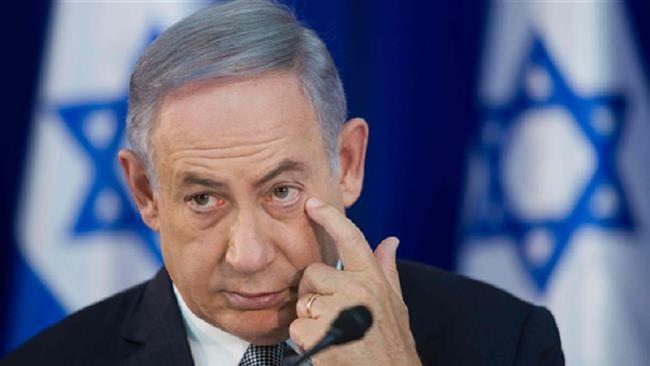
RNA - Asked whether there is an anti-Iran front with Israel, Saudi Arabia and Egypt as crucial players, Netanyahu told CNN’s Fareed Zakaria at the World Economic Forum in the Swiss town of Davos on Thursday that the alliance was an “extraordinary thing.”
“I agree that there is an alignment of Israel and other countries in the Middle East that would’ve been unimaginable 10 years ago, and certainly in my lifetime. I never saw anything like it,” the Israeli premier said.
“Yes, it starts with a common concern for a common enemy which is radical Islam, either of the radical Sunnis, Daesh, before that al-Qaeda, which Israel fights ... and also our common stance against Iran,” he added.
This is while the Tel Aviv regime has been accused of colluding with terrorist groups that are currently losing ground against the Syrian army.
Israel has frequently attacked military targets in Syria and provided weapons to anti-Damascus militants as well as medical treatment to the Takfiri elements wounded in the war-torn Arab country.
In September 2016, the Israeli daily Ha’aretz quoted lawmaker Akram Hasoon as saying that the regime was directly aiding the Takfiri terrorist group Jabhat Fateh al-Sham, formerly known as al-Nusra Front.
Israeli officials step up calls for anti-Iran alliance
In November 2017, Israeli minister of military affairs Avigdor Lieberman extended the hand of “friendship” to Arab countries, calling on them to form an alliance against the Islamic Republic.
Lieberman’s comments came two days after Israeli military Chief of Staff Lieutenant General Gadi Eizenkot expressed the regime’s readiness “to exchange experiences with moderate Arab countries and exchange intelligence to confront Iran.”
Eizenkot claimed that Iran was the “biggest threat to the region” in an interview with the Saudi-owned Elaph online newspaper.
The Israeli-Arab alliance is widely believed to have set the stage for US President Donald Trump’s recent policy shift on Jerusalem al-Quds, which drew condemnations and protests worldwide.
In December 2017, Trump said that Washington was recognizing Jerusalem al-Quds as the “capital” of Israel and planning to relocate the American embassy from Tel Aviv to the holy city.
Numerous reports have suggested growing contacts between Israel and Saudi Arabia in the past few months though they have no formal diplomatic relations.
Saudi Arabia is widely viewed as the homeland of radical Wahhabism, the same ideology influencing Takfiri outfits which have been wreaking havoc in the Middle East and beyond for years.
847/940